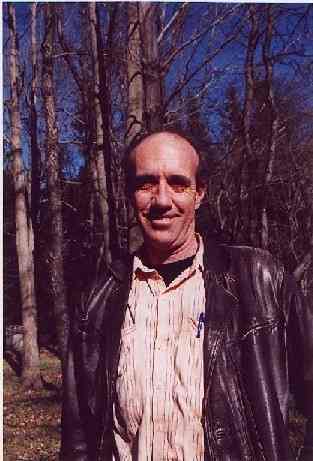PATIENCE
How poor are they that have not patience!
Othello.Act ii.Sc.3.
William Shakespeare
How poor are they that have not patience!
Othello.Act ii.Sc.3.
William Shakespeare
Sometimes I find my patience is not what it probably ought to be. Usually when I see one of the people I guide going back over the same old ground I stand aside and just watch and wait for some kind of realization to appear for them. Occasionally, however, I do feel a flash of impatience and wonder why nothing seems to work. It is embarrassing that I should feel this way as I know better. Everyone moves at their own pace and I have absolutely no way of knowing what that pace will be. Nor do I have any right at all to hurry the pace. In fact that would be exactly the wrong thing to do. All I need do is remember the incredible patience Pir Vilayat had with me. It’s those flashes of unreasonable impatience that this article is about.
Another manifestation of my impatience is driving in this town. After 30 years of the hectic pace of New York City, Scranton, PA seems way too slow. Anyone driving 20 MPH or less on a New York City street would probably be pushed to the side of the road, but here it is the norm. I have been observing my emotions when I am behind one of these people, it is not pretty. You would think after 35 odd years of working on myself through spiritual practices that I would be constantly serene and calm; not so. After all these years of discipline I still find my impatience and anger surging to the surface. Will it never go away?
Since this is such an annoying question for me I thought to do some research in Hazrat Inayat Khan’s works. He has a lot to say about patience but here is something that he said that surprised me, though I suppose it should not have: “It is a great difficulty that the people in this land of America are losing this quality of patience more and more every day, because Providence has blessed them so much. They have conveniences, they have comforts, they are the spoilt children of Providence, and when it comes to having patience, it is very hard for them.”
And he’s right. That was written almost 100 years ago and it applies even more today than it did then. A hunter/gatherer type person absolutely must be patient; the game will only come when it comes. A farmer must be patient, planted crops take their time, sheep can only grow wool so fast, and a chicken lays only one egg a day. But here in America and in Europe and probably in other parts of the world that are enjoying the benefits of industrialization, impatience is the rule.
One of the things that I constantly stress to the people I guide is that there are three ingredients necessary for a spiritual life. The first is discipline, you must decide to do it and then follow through. The second is courage as you will be often faced with the need to reevaluate your opinions. And the third, and probably most important is patience. To expect something to happen just because you have decided you want spiritual experiences is probably not going to be very useful. Never-the-less it is how we often feel. What is happening, of course, is that our culture tells us that we can have it NOW because we can get INSTANT CREDIT! WHY WAIT? Of course that is not how it works in spirituality but the idea is so deeply ingrained in us that we have difficulty feeling otherwise; thus my flashes of impatience. I am one of the spoilt children of providence; so much for spiritual advancement.
Here is what I really think; this is an incredible opportunity. Yes, primitive man was patient; what choice did he have? We, on the other hand, have many choices, some might say too many choices, but that is how it is and it is possibly our greatest challenge. We have this wonderful opportunity to truly challenge ourselves and to use the world around us as our measure against our own internal truths. Screaming through the windshield at some 90 year old woman driving 20 mph, who does not hear you anyway, is an opportunity to have a look at your own experience. How does it feel? What is the source? Can you calm yourself and just wait? Working on patience then becomes a true spiritual practice.
We tend to think that spiritual practices must be unique or exceptional in some way, that they must have some kind of ancient mystical significance but, the truth is, almost any discipline is a spiritual practice if it shakes you out of your complacency and gets you closer to who you really are.
I will continue to work on my patience, noticing and occasionally catching myself in some silly impatient reaction. I hope you do the same.
Love & Blessings, Musawwir

